We are not used to our heroes committing heinous crimes. Most heroes we think of during our modern era come along with the adjective “super.” They are beyond human, unimpeachable examples of moral and physical strength.
They would never intentionally hurt another human being.
This is, perhaps, the biggest reason why Dostoyevsky’s 1866 novel Crime and Punishment has endured for such a long time. He is a hero who smashes our expectations and yet, eventually, still manages to assure us of his heroic qualities.
Since many of us have been confined to our homes over the last several weeks while the novel coronavirus wends its way around the globe, we’ve had time to catch up a previously missed television series or two (or, er…twelve). Seems like everyone is publishing lists of “what to watch while self-isolating,” or any number of “favorite quarantine watch lists” to be found out there. Let’s take a look at a handful. And as we wend our way through these stories, it’s pretty darned hard to find heroes who have actually done really horrible things in their stories.
The antiheroes described below, however, join Raskolnikov, the hero in Crime and Punishment, in surprising (and delighting!) us with the horrible things they’ve done.
THE GOOD PLACE
Eleanor Shellstrop has just died and finds herself in the welcome lobby of “The Good Place.” She celebrates that she “made it in,” but pretty soon we find out she has a secret: Eleanor does NOT belong there.
Eleanor is undoubtedly the hero of the show, but we soon find out just exactly how bad a person she really is. (Was. Still is.) The thematic premise of the show, then, becomes: How will people (namely Eleanor and the friends she shares her secret with along the way) act when presented with certain moral choices of good and evil?
This is exactly the moral dilemma of Crime and Punishment. Raskolnikov spends the entirety of the novel struggling with his conscience and the crime he has committed, just as Eleanor and her band of ragtag good place interlopers struggle with the decision to either confess or keep living the good life – even as it literally destroys the fabric of their world!
Eleanor and the rest of The Good Place cast enlist the help of philosophers to make their decisions. It’s a hilarious comedy, a stunning visual feast (the props, the sets, the costumes, the set dressing… the makers on the crew of this show were consistently doing an amazing job making their own jokes and references, and usually only in the background), and it’s a crash survey course of the history of philosophy.
Crime and Punishment is also rich with the many philosophies that were popular during Dostoyevsky’s time. Raskolnikov’s own theory that “great men” (such as Napoleon) were exempt from the laws that govern other, lesser men is the first philosophy touched on in the novel. But the tenets of socialism, communism, and the basic idea of human rights are threaded through the novel in as many ways as Kant, Hume, and Kierkegaard guide the team through ethical dilemmas on The Good Place.
THE SOPRANOS
Tony Soprano is the head of a large mafia family in New Jersey, and has made not only his entire career as a criminal but has, all through his childhood, watched his father commit the same heinous crimes. At the start of the show, we see Tony experience panic attacks – something we’ve certainly never seen happen to any other mob guy or criminal element we’ve come into contact with through literature or film. And as a result of those panic attacks, Tony Soprano seeks out and attends therapy.
Tony is a character who would traditionally be considered a “bad guy” whose story we are meant to empathize with. This is a pretty basic definition of an antihero. Other examples of antiheroes include Holden Caulfield in The Catcher in the Rye, Tyler Durden in Fight Club, Vito and/or Michael Corleone in the Godfather franchise, and Walter White from Breaking Bad.
What makes Tony a little bit different from other antiheros we’ve become familiar with is the underlying question throughout the entire series, that remains largely unanswered for most of the series: Does Tony really feel guilty about his life and career as a criminal? Or is his mental and emotional midlife crisis comparable to the more vanilla-flavored crises all of us ordinary janes and joes go through? This very question and all its ramifications tie Tony’s moral and ethical struggle (if it exists!) to Raskolnikov in Crime and Punishment.
If you’d like to investigate and compare Tony’s intentions to Raskolnikov’s for yourself, HBO is streaming The Sopranos, as well as a bunch of other shows, for free during the pandemic. Learn more here.
FLEABAG
Fleabag is the name of the main character – our protagonist, our hero – on the Emmy-winning show of the same title. As you may have guessed from her self-professed name, she’s done some pretty nasty things. She starts her story with tales of her sexual exploits, which she feels refreshingly NOT guilty about. Her adventures escalate until we not only come to wonder if they can possibly be true, but also if we can actually trust Fleabag when she describes how she feels about them in general.
Fleabag is an incredibly unique character. Her popularity probably has a lot to do with the never-before-seen kind of disdain she has for good judgment and propriety. Who doesn’t feel a rush of relief at our hero admitting that her ill-advised threesome the night before that “actually the best time she’s had in a good long while”? She embraces sexuality in a daring and empowering kind of way, making us believe that she has no qualms whatsoever. She makes us laugh at all the most inappropriate situations. She, ultimately, doesn’t give a f*ck about anyone else’s opinions or judgments of her and her choices… or so she makes us believe.
Until little by little she reveals to us that her conscience is just as tormented and tortured as that of a murderer – one could say, a murderer such as Raskolnikov. Her lapses of judgment and propriety can be directly compared to Raskolnikov’s lapses of sanity and coherence. The biggest difference, of course, is that Fleabag makes us snort-laugh the whole time – sometimes even through our tears.
THE WIRE, SEASON TWO
HBO’s The Wire, a 5-season tale of corruption in Baltimore, is possibly one of the best TV shows ever produced. It’s Shakespearean in its modern-day hierarchy of corrupt leaders, as well as in its multiple tragedies. The King’s English is replaced with some of the most profound street slang ever committed to film. There’s a modern-day conversation between the war on the streets and the war in Iraq, which was ongoing while the show aired. And, it turns out, one of the characters from season two (which is set on the docks, among the variously corrupt levels of stevedore unions) has an awful lot in common with our dear Raskolnikov.
Chester Karol “Ziggy” Sobotka is a young stevedore just trying to find some work and some respect on the Baltimore docks—both to very little success. His father, Frank, is a well-respected and long-successful stevedore union president. Industrialization has led to a lack of work for everyone, and has led Frank into a nefarious partnership with a well-paying but dark and dubious group of Greek and Russian mobsters. Through these connections with this shadowy enterprise, Ziggy becomes involved in criminal activity and eventually kills one man and shoots another.
Unlike the rest of the criminals in the world of The Wire, Ziggy immediately feels remorse for his crime. He heads straight to the police department and confesses, even changing the language on his written statement to read that his victim “begged not to be killed” rather than simply “said” so.
While Ziggy’s journey toward repentance and redemption takes a fraction of the time Raskolnikov’s does, the two characters have so much in common. They are both young, passionate, entitled, even Napoleonic – always looking for respect, and often failing to find it. They both wish to be considered “extraordinary,” and choose drastic courses of action in pursuit of that ideal.
When Dostoyevsky began writing Crime and Punishment, he originally intended to write on the theme of drunkenness. The evils and perils of drink are evident in the story’s side plot about the Marmeladov family, whose patriarch struggles with and eventually dies from alcoholism. The many bar scenes where Ziggy and his coworkers end—and often even begin—their workdays can be seen as allegories or warnings away from drinking as well.
Ziggy’s journey may not be an exact replica of Raskolnikov’s, and season two of The Wire may not be a pure adaption of Crime and Punishment. But I’d lay really good odds that the novel was on the minds of many of the artists in that particular writers’ room.
As audience members, readers, and film watchers, we typically like our heroes to be squeaky clean. To make good, strong, ethical choices – to be models we can look up to for inspiration and hope. But when a story’s hero strays from this expectation, and yet still manages to convince us that they are, in fact, heroes, we are so intrigued that their legacy endures – sometimes even for over a century.
* * *
Learn more about VM Productions, Crime & Punishment, and a more traditional hero at our blog and vlog: Spiderman and Crime and Punishment.
* * *
VM Productions is happy to announce that the pre-production of our feature length project Crime & Punishment, LA – following by the shoot of the movie – is scheduled to begin on Tuesday, September 8th, 2020 in Los Angeles! http://www.vmpfilms.com/#August_
Crime and Punishment, LA, represents the third chapter of VM Productions ambitious Dostoyevsky-LA Project (following the completed movies Shades of Day & Notes From the New World) – a re-envisioning of Dostoyevsky’s classic novel transported to LA during the riots of 1992. C&P, LA -currently in the active development- was selected, as the winner, for the European Co-Production Matchmaking Program at SXSW –https://bit.ly/324e5kD
*****
Want to know about VM Productions‘ Dostoyevsky-Los Angeles Project and about the films we make? Want to participate in our projects? Sign up to get tickets to the premiere of our movie (currently in post production), Dostoyevsky Reimagined-BTS and grab our FREE e-books !
 |
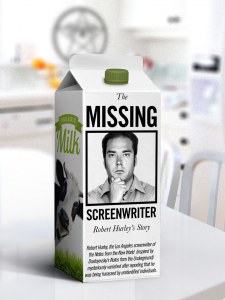 |
Follow us through our social media on
Twitter, Facebook, Pinterest, Tumblr, Instagram, Goodreads.
The visual material – fair use – by Heather Nowlin and VM Productions

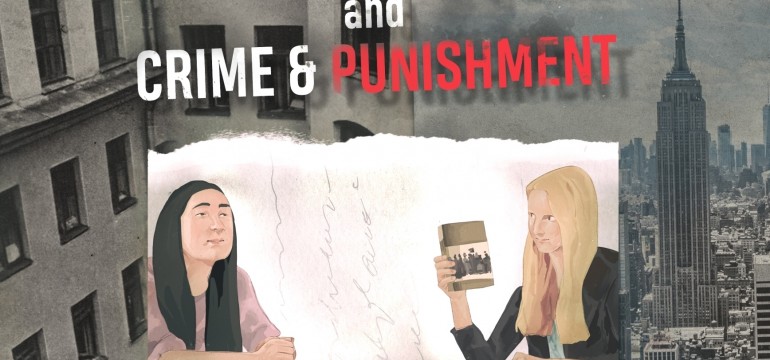

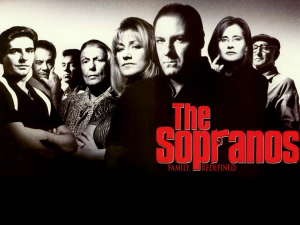


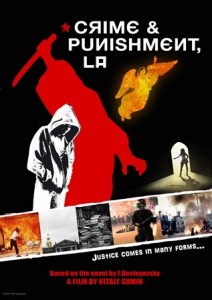

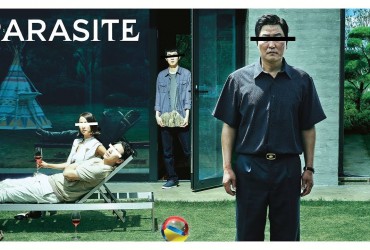




Leave a Reply